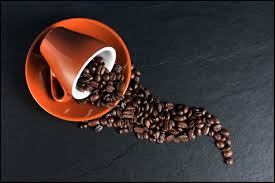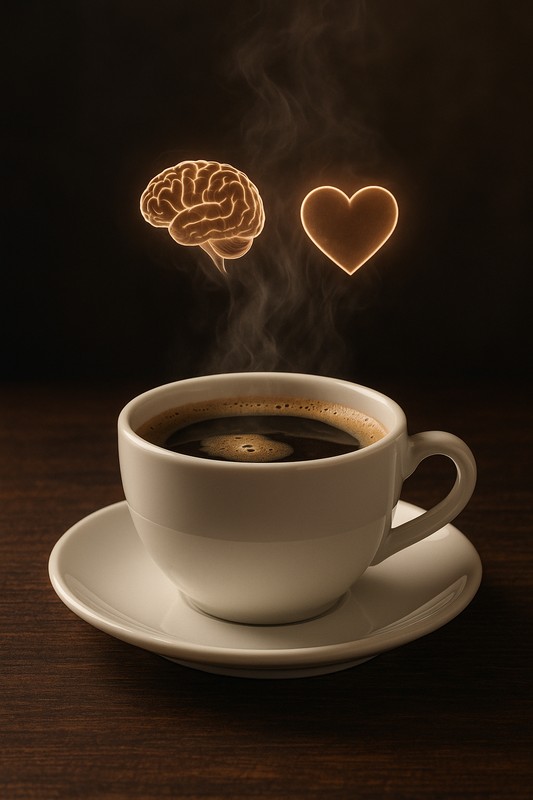
Unlock Enhanced Cognitive Performance: The Power of L-Theanine and Caffeine Together
tl;dr
L-theanine paired with caffeine shows robust, consistent evidence of improving multiple metrics of cognitive performance.
The Full Breakdown
It seems almost nonsensical to point out that caffeine is a stimulator of our brain - I mean, the media landscape abounds with people joking, ‘don’t talk to me until I’ve had my coffee’, and for good reason. However, another molecule has been studied quite extensively to be paired with caffeine in liberating us from the horrors of uncaffeinated wakefulness - l-theanine.
We reviewed several studies on the impact L-theanine has, in conjunction with caffeine [1][2][3][4], and the results aren’t anything to sneeze at. Across these four studies, including a systematic review of 6 studies, the research is incredibly consistent that pairing l-theanine with caffeine provides some additional brain boosting benefits not otherwise experienced. For example, when looking at alertness, we know that caffeine has potent effects, and yet there may be some additional benefit experienced from l-theanine combination [4]. Additionally, while caffeine can sometimes stimulate anxiety in some individuals, l-theanine seems to have a protective effect, acting as a mild anxiolytic (that means it eliminates anxiety). In some trials, tiredness decreased and metal fatigue was reduced more consistently when the ingredients were paired [2].
Speaking to that systematic review, which is a more rigorous method by which to review studies, 6 randomized controlled trials indicate l-theanine’s pairing not only improves alertness as aforementioned, but also improves memory and reaction time [3]. What is especially striking is the fact that while many people are already habitual caffeine consumers - the addition of l-theanine still provides cognitive benefit [4]. Finally, it’s fine to be more alert, to have better attention, and even better memory, but does that all translate to improved cognitive performance? The answer is yes - in one trial, participants experienced improvements in the number of correct answers they could provide.
Now, with most molecules, there is generally some level of heterogeneity - meaning, some studies indicate mild benefit, other studies show great benefit, while yet others might indicate no effect (or worse!). Interestingly, across the studies we have to date, every single study shows effectiveness of this pairing - indicating a growing, consistent, homogenous base of evidence in favor of the pairing. Finally, while l-theanine is also used for sleep, and has been shown to improve sleep, it also is known to increase the vividness of dreams, sometimes waking people from sleep - an undesired consequence. Fortunately, the timing of dosing likely matters - since it isn’t advised to consume caffeine before bed, the pairing of l-theanine is safely attuned to acting as an addition to caffeine’s effects without causing possible sleep disturbances later in sleep.
Oh, and one more thing - there is something unique about the dosing strategy used throughout all of these studies, and we at BeElevate have taken that strategy and implemented it in our formulation to ensure the best possible results… not to brag or anything.
The Reference Roundup
[1] Owen GN, Parnell H, De Bruin EA, Rycroft JA. The combined effects of L-theanine and caffeine on cognitive performance and mood. Nutr Neurosci. 2008;11(4):193-198. doi:10.1179/147683008X301513
[2] Haskell CF, Kennedy DO, Milne AL, Wesnes KA, Scholey AB. The effects of L-theanine, caffeine and their combination on cognition and mood. Biol Psychol. 2008;77(2):113-122. doi:10.1016/j.biopsycho.2007.09.008
[3] Anas Sohail A, Ortiz F, Varghese T, et al. The Cognitive-Enhancing Outcomes of Caffeine and L-theanine: A Systematic Review. Cureus. 2021;13(12):e20828. Published 2021 Dec 30. doi:10.7759/cureus.20828
[4] Giesbrecht T, Rycroft JA, Rowson MJ, De Bruin EA. The combination of L-theanine and caffeine improves cognitive performance and increases subjective alertness. Nutr Neurosci. 2010;13(6):283-290. doi:10.1179/147683010X12611460764840


